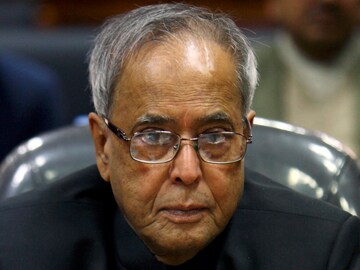
Pranab Mukherjee: Caught between Trivedi and Trinamool
The Economic Survey endorses the reforms recommended by various committees, but practically every move available to the FM would be seen as anti-poor by the Trinamool
Rare is the occasion when a finance minister has to present the national budget with the crippling uncertainty of his government’s existence gnawing at the back of the mind. As finance minister, Pranab Mukherjee has the unenviable job of reviving an economy teetering on the edge while as the United Progressive Alliance’s chief trouble-shooter, he has to ensure the government’s survival. Saving one could very well mean putting the other on life-support.
The political drama that began on Wednesday after rail minister Dinesh Trivedi presented the railway budget has continued to play out vociferously in Parliament, breathlessly on national television and silently in the intrigue-filled drawing rooms of behind-the-scene operators. Trivedi is being hounded by the Trinamool Congress (TMC) as the heretic betrayer of his own party and its mercurial supremo Mamata Banarjee. That, for raising passenger fares after a gap of 10 years, during which the national carrier progressively decayed, in an otherwise ambitious rail budget.
The political crisis has deepened with reports suggesting that Trivedi has defied Banerjee’s order to quit and is in close talks with the Congress Party for a side-door entry. Even though the TMC has said that it would not pull the government down, the Congress is not taking any chances and is trying to persuade the Samajwadi Party—whose leader Akhilesh Yadav today took oath as Uttar Pradesh’s youngest chief minister—to join the alliance at the Centre. The Party already supports the alliance government from the outside and a tie-up could mean the return of Mulayam Singh Yadav to the Union Cabinet after a gap of 14 years. Sources say that Congress is willing to give away the rail ministry to the Samajwadi Party if it were to sign on and TMC were to pull out.
Meanwhile, a large section of the TMC is believed to be putting pressure on Mamata Banerjee to not do anything drastic because they know that the party punches above its weight because of its position as a UPA constituent with a crucial prop of 19 Lok Sabha seats. Banerjee is also believed to be playing the game to get maximum mileage for Bengal in the Union budget. The state’s finances are in a mess and highly placed officials say that without the Centre’s support, it would even struggle to pay salaries and interest on loans after a month or two. But Mukherjee may not have enough headroom to accommodate Mamata Banerjee’s demands. While TMC has publicly said that it would oppose any reform that it sees as ‘anti-poor’, practically every move available to the finance minister would attract that criticism. If he were to rein in ballooning subsidies, he would have to raise fertilizer, food or fuel prices. Each one of them is a politically sensitive flak-magnet.
Perhaps that is why Mukherjee’s economic advisor Kaushik Basu has stayed off making recommendations in the Economic Survey, which was the hallmark of last year’s document. It is another matter that in his last budget speech, the finance minister ignored practically every suggestion made in that document. Instead, the latest survey merely endorses the reforms recommended by various committees in different areas such as efficient management of public finances, IT backbone for the public distribution system and solutions for direct transfer of subsidies.
This survey chooses to reflect upon the long-term trends instead of dwelling on short-term change in the economic variables. It made the choice at a time when most economic variables have deteriorated in the short term—though, when compared to data since the 1950s, they give a false cushy feeling.
The survey, however, does seem to have a message for Anna Hazare. It says that the Jan Lokpal Bill may not necessarily be a good idea. It says public institutions could become over-cautious in clearing projects. Pointing out that increased regulation aimed at curbing corruption and reining in poor governance has proved to be counter-productive in many countries, the survey states, “While we need to ruthlessly crack down on corruption, it must, at the same time, be recognised that the fear of a large and cumbersome anti-corruption bureaucracy can be detrimental to risk taking and may hamper legitimate activities in public institutions.” Between these lines could be the beginnings of another political storm as the Bharatiya Janata Party, the principal opposition party, has been clamouring for a Lok Pal Bill since the beginning of the Parliament session.
It is possible that Dinesh Trivedi was triggering off a reformist trend with the rail budget and Pranab Mukherjee would continue that tomorrow. Given that most political parties are reluctant to force an election now, least of all the BJP, this may yet be Mukherjee’s best chance to make a bold statement despite the political risks.
(Additional reporting by Archisman Dinda, Udit Misra and KP Narayana Kumar)





